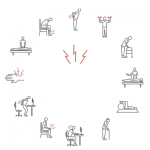“These are things that are not going to cause harm to your patients, so there’s really very little risk in doing them, but they do take up time,” he says. “Do we need to wait for a randomized controlled trial to say that we should be doing these things? Probably not.”
Douglas Gourlay, MD, an addiction medicine physician and educational consultant in private practice in Hamilton, Canada, says, “We still haven’t come to grips with the notion that everything has risk, and the challenge is what do you do with that risk and how do you manage it.”
One unintended consequence of addressing the opioid epidemic by restricting supply is that patients who have been on long-term prescription opioids can no longer obtain them, which can lead to the patient getting the drugs illegally or even using street drugs, notes Dr. Gourlay, who was not involved in the study.
Clinicians can’t always judge who’s at risk of misusing opioids, he added, given the role of genetics, personal history and other factors in determining vulnerability to substance abuse. He and his colleagues were the first to propose the idea of using “universal precautions” in pain medicine in a 2005 article.
“Physicians have always thought that they know their patients better than anyone else would know, but time and time again we really don’t know as much about our patients as we thought,” he says.
Reference
- Alford DP, Lazure P, Murray S, et al. National trends in prescription opioid risk mitigation practices: Implications for prescriber education. Pain Med. 2019 Feb 21. pii: pny298. [Epub ahead of print]



